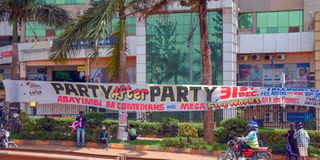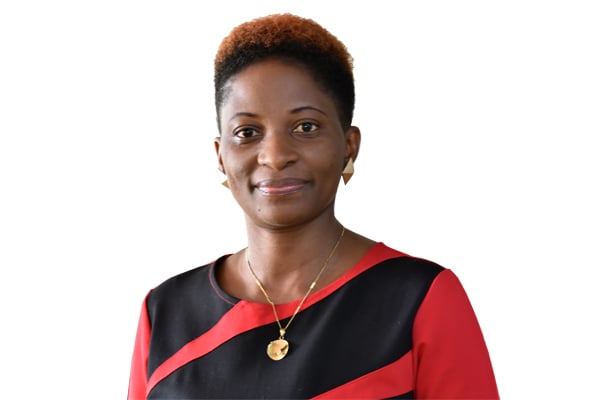Prime
Organisers of events should prioritise safety

A banner advertising the party after party concert at Freedom City mall in Kampala where a New Year eve stampede left 10 dead. PHOTO | MICHAEL KAKUMIRIZI
What you need to know:
- The issue: Events organising
- Our view: Until event organisers, promoters, and venues begin to take full responsibility for the safety of people at concerts, sporting events, and festivals, tragedies like the one witnessed at Freedom City aren’t too far away.
If you plan to organise a public event or festival, the process is likely to be elaborate yet simple. All that event promoters or managers need is to book a date, venue and artiste first.
Thereafter, the manager will find a contact within the police to help him or her “move letters” seeking permission to hold a concert or festival.
Since most of these events are non-political, this permission is often expressly granted.
Save for a few new venues, the places where these events are held are known to everyone, which implies that the police will okay the event without visiting the venue to ascertain if their safety standards will be met.
As we emerge from the festivities which are always packed with concerts, your mind cannot meander too far from the stampede that led to loss of lives at Freedom City on Entebbe Road in Wakiso District on December 31.
Since the unfortunate incident, police have arrested and jailed the organiser and sought to interrogate several others. This process will take time but while we wait for fruits, we need to avoid similar catastrophes.
It’s not new to many of us to find an event overcrowded or lacking a basic evacuation plan in case thousands need to leave at once. This is critical.
Regardless of the size or type of venue, proper measures must be taken to protect people. But how does event security work, exactly? Should there be a certain ratio of security officers to the people? Are the requirements different depending on the event being religious, sports or arts?
There is an urgent need to compel organisers to create a detailed security plan, hire a licensed private security company, and have enough police and private security officers at the event.
Arrangements, including a detailed security plan, must be subject to final review and approval by the proper authority, beyond a letter written by a police officer behind his desk at dusk without site inspection.
Responsibility for security at a concert or other live event will typically lie with the organiser or the venue itself.
These parties are responsible for understanding security regulations and then adhering to these.
In addition to human resources, all events must have video surveillance, gates and fencing, metal detectors, adequate lighting, guest screening and security alarms.
Until event organisers, promoters, and venues begin to take full responsibility for the safety of people at concerts, sporting events, and festivals, tragedies like the one witnessed at Freedom City aren’t too far away.




